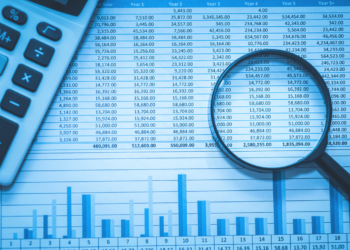When Enron’s financial scandal dominated headlines in the early 2000s, it was the first many had heard the term “forensic accountant.” Years later, forensic accountants would once again find fame in new stories detailing Bernard Madoff ’s unprecedented Ponzi scheme. These two fraud schemes, among many others, sparked the creation of new laws and regulations that led to an increased demand for forensic accountants. Nevertheless, forensic accounting remains shrouded in mystery for many.
SO, WHAT IS FORENSIC ACCOUNTING?
The word “forensic” is defined by Black’s Law Dictionary as “used in or suitable to courts of law or public debate.” A forensic accountant is likely to be both a Certified Public Accountant and a Certified Fraud Examiner and each certifying organization has its own definition. The Association of Certified Fraud Examiners (ACFE) states “Forensic accounting is the use of professional accounting skills in matters involving potential or actual civil or criminal litigation.”
Additional clarity was provided about a year ago when the AICPA’s Forensic and Valuation Services Executive Committee issued its first standard on forensic accounting services, Statement on Standards for Forensic Services No. 1 (SSFS No. 1). SSFS No. 1 states that “Forensic accounting services generally involve the application of specialized knowledge and investigative skills by a member to collect, analyze, and evaluate certain evidential matter and to interpret and communicate findings.” The new standard also states that forensic accounting services generally fall into one of two categories: Investigation or Litigation (inclusive of disputes and all forms of alternative dispute resolution).
FORENSIC ACCOUNTING REQUIRES MORE THAN A STINT ON THE WITNESS STAND
Throughout my career, it has always been customary to identify a new engagement as an investigation or a litigation matter. While each requires a unique approach, many of the procedures are often similar. In both types of matters, work performed by the forensic accountant would likely include a review of accounting transactions and related financial records. Procedures may also include interviewing persons with knowledge of key information. A written report of findings is common as well. In litigation matters, forensic accountants may also collaborate with legal counsel in the discovery stage to ensure that necessary information is obtained. This can include assisting with the preparation of interrogatories, document requests, and deposition questions for key witnesses. When performing services in a litigation setting a forensic accountant would typically be engaged either as a consultant or as an expert witness, and a forensic accountant hired as a consultant may even see his or her role evolve into that of an expert witness.
IT GOES BEYOND FRAUD INVESTIGATIONS
When I tell people I am a forensic accountant, many assume I am full-time fraud investigator. However, fraud investigations make up a minor portion of my work load. A forensic accountant is valuable in any dispute — actual or anticipated — that requires critical analysis of accounting infor-mation. Additional matters that could benefit from the services of a forensic accountant include the following:
- Interpretation of accounting principles in post-acquisition disputes.
- Verification of compliance with license agreements.
- Preparation and review of business interruption insurance claims.
- Analysis of lost profits in commercial disputes.
- Preparation of maintenance and child support calculations in family law matters.
- Valuation of businesses.
FORENSIC ACCOUNTING REQUIRES SPECIALIZED TRAINING BEYOND TRADITIONAL ACCOUNTING
These types of services are typically more appropriately performed by forensic accountants than traditional accountants. Forensic accountants have specialized training and experience, heightened professional skepticism, and an understanding of the basic legal framework. These skills and credentials allow the expert opinions of forensic accountants to better withstand scrutiny and any financial expert challenges.
FORENSIC ACCOUNTANTS WORK AS PART OF A TEAM
Forensic accountants can also collaborate with other professionals who are part of your team. For example, forensic accountants can give computer forensic investigators specific keywords to search for in emails and digital files. Computer forensic investigations may be able to provide forensic accountants the electronic records necessary to perform complex data analysis.
IT’S AS MUCH AN ART AS IT IS A SCIENCE
Forensic accounting is difficult to define as it is as much an art as it is a science. Regardless of the definition of forensic accounting, there is rarely a dull day when performing forensic accounting services. In my opinion, forensic accounting is as exciting as accounting can get.









